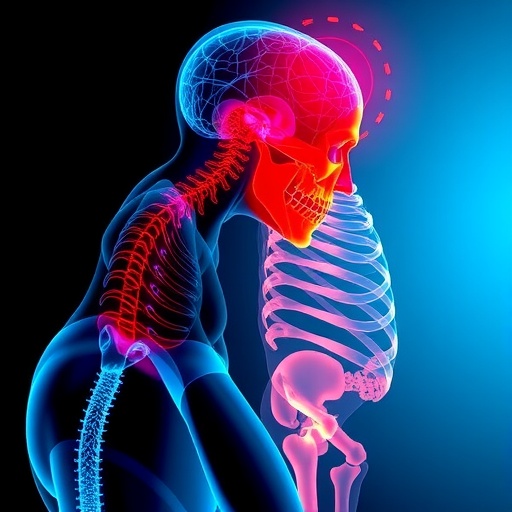
A recent study led by researchers at Concordia University has unveiled compelling evidence suggesting that chronic use of benzodiazepines and benzodiazepine receptor agonists (BZRA) significantly disrupts the architecture of sleep and alters crucial brain oscillations in older adults suffering from chronic insomnia. Published in the esteemed journal Sleep, the findings challenge the long-held belief in the effectiveness of these widely prescribed medications and shed new light on their detrimental impact on neural processes vital for memory consolidation and cognitive health.
Benzodiazepines and related compounds, commonly prescribed for insomnia and anxiety, have long been favored for their sedative properties. However, despite their affordability and widespread availability—particularly in regions like Quebec—their long-term use raises serious concerns. These drugs are not only addictive but also carry risks of severe withdrawal symptoms, which include increased incidence of falls, hospitalizations, and cognitive impairments. The crucial question, which this new research seeks to answer, is how these medications affect the underlying neurophysiological aspects of sleep, especially in older populations who are more vulnerable to both insomnia and cognitive decline.
The study involved a detailed assessment of 101 individuals aged between 55 and 80. Participants were classified into three distinct groups: good sleepers without insomnia, individuals with chronic insomnia but no benzodiazepine use, and those with chronic insomnia who had been using benzodiazepine or BZRA drugs at least three times per week for over three months. By employing overnight polysomnography—a gold standard sleep assessment methodology—the researchers quantified not only the macrostructure of sleep but also analyzed brainwave activities and specific electrophysiological oscillations, including slow waves and sleep spindles, both known to play critical roles in memory consolidation and general brain health.
One of the study’s pivotal revelations concerns the reduction in the amount of deep sleep stages—also known as slow-wave sleep—in benzodiazepine/BZRA users compared to insomniacs not using these medications. Slow-wave sleep is characterized by synchronous, slow-frequency brain oscillations, alongside vital physiological changes such as reduced heart rate and slowed respiration. These stages are fundamental for the brain’s ability to consolidate newly acquired information, integrate memories, and perform restorative processes. The attenuation of this deep sleep thus suggests a mechanistic basis for cognitive impairments often observed among chronic users.
Moreover, the research highlighted disruptions in the coupling of brain oscillations among the benzodiazepine/BZRA cohort. Normally, sleep involves a dynamic interplay between different oscillatory activities—such as the synchronized timing between slow waves and sleep spindles—to optimize cognitive processing during rest. The observed decoupling in users implies a breakdown in this crucial neural synchronization, potentially leading to impaired information processing and memory consolidation. This finding underscores the subtle yet profound neurophysiological consequences of long-term sedative usage beyond mere alterations in sleep duration or latency.
Intriguingly, the degree of sleep disturbance correlated with the dosage of benzodiazepines taken. Participants with higher dosages experienced longer latency to fall asleep and delays in reaching restorative deep sleep stages. Such dose-dependent effects imply that not only the presence but also the intensity of benzodiazepine exposure critically modulates the extent of sleep architecture disruption, highlighting a pressing need for dosage monitoring and cautious prescription practices particularly in elderly populations.
The implications of these findings extend beyond basic sleep science to clinical practice. As Loïc Barbaux, the study’s lead author, emphasizes, the degradation of sleep architecture and brain oscillatory robustness may provide a biological explanation for the cognitive decline and functional impairments previously linked to these medications, compounding the natural deterioration seen in aging individuals. This underscores the paradox of sedative use: medications intended to alleviate insomnia symptoms may in fact exacerbate underlying cognitive vulnerabilities.
Despite these risks, benzodiazepines remain in common use for managing anxiety and short-term insomnia, especially among younger adults where the safety profile is considered relatively favorable for brief treatment periods. Yet, for older adults, this study lends further weight to existing recommendations by entities such as the American Geriatrics Society, which advises against benzodiazepine use in individuals over the age of 65 due to heightened risks.
For older adults currently dependent on these medications, the researchers advocate a carefully supervised, gradual tapering approach. Sudden cessation can induce rebound insomnia—a pronounced exacerbation of sleep disturbances—and other serious withdrawal symptoms. Coupling this taper with cognitive behavioral therapy for insomnia (CBT-I) improves the likelihood of successful discontinuation while enhancing sleep quality through non-pharmacological means.
The study’s authors also call upon healthcare systems and policymakers to prioritize the development and accessibility of safer, evidence-based insomnia treatments that do not rely on chronic sedative use. Psychological interventions, lifestyle modifications, and emerging pharmacotherapies offer promising alternatives that mitigate risks and preserve cognitive function in aging populations.
In conclusion, this landmark research not only challenges the safety and efficacy of long-term benzodiazepine and BZRA use in older adults but also charts a path forward for improving sleep health and cognitive resilience in this vulnerable demographic. As our understanding of sleep’s neurophysiology deepens, so too must our commitment to evidence-based, patient-centered approaches that safeguard brain health across the lifespan.
Subject of Research: People
Article Title: Effect of chronic benzodiazepine and benzodiazepine receptor agonist use on sleep architecture and brain oscillations in older adults with chronic insomnia
News Publication Date: 17-Jun-2025
Web References:
https://academic.oup.com/sleep/advance-article/doi/10.1093/sleep/zsaf168/8164643
https://agsjournals.onlinelibrary.wiley.com/doi/10.1111/jgs.18372
https://www.concordia.ca/faculty/thanh-dang-vu.html
References:
Dang-Vu, T., Barbaux, L., et al. (2025). Effect of chronic benzodiazepine and benzodiazepine receptor agonist use on sleep architecture and brain oscillations in older adults with chronic insomnia. Sleep. DOI: 10.1093/sleep/zsaf168
Image Credits: Concordia University
Keywords: Sleep disorders, Insomnia, EEG activity, Sleep deprivation, Slow wave sleep, REM sleep, Adults, Aging populations
Tags: addiction risks of benzodiazepinesbenzodiazepine receptor agonistschronic benzodiazepine usecognitive health and sleepelderly populations and insomniahospitalizations related to sleep medicationsimpact of insomnia medicationslong-term effects of benzodiazepinesmemory consolidation and sleepneurophysiological aspects of sleepresearch on sleep disorders and agingsleep quality in older adults




